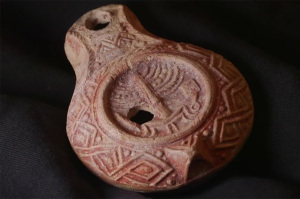South Africa's Removal of Health Minister Praised
CAPE TOWN, South Africa - AIDS activists on Friday celebrated the removal of South Africa's health minister, accused of causing countless unnecessary deaths by promoting nutritional supplements instead of conventional medicine for people with HIV.
New President Kgalema Motlanthe, within hours of taking office Thursday, won instant praise by announcing that Manto Tshabalala-Msimang would be removed as health minister and given a lesser post in his office.
Speaking to reporters Friday after being sworn in to her new job as head of government communications, Tshabalala-Msimang rejected criticism.
"The only critics were the media, and the media had lost perception," she said, adding: "I am very excited about the new challenge."
Activists accused Tshabalala-Msimang of spreading confusion about AIDS by saying she did not trust antiretroviral medicines and preferred nutritional remedies such as garlic, beetroot, lemon, olive oil and the African potato.
Her views earned her the nicknames "Dr. Garlic" and "Dr. Beetroot" and made her a favorite target for cartoonists.
South Africa now has the world's highest number of people with HIV, counting some 5.4 million people as infected with the virus that causes AIDS, activists say.
"Tens of thousands of South Africans have lost their lives because of her ridiculous policies on HIV/AIDS, and she should have been fired nine years ago," the opposition Democratic Alliance said.
Tshabalala-Msimang's removal suggested a stark shift in South Africa's AIDS policy and was seen as a sign that Motlanthe would pursue his own course, despite promises he would not substantially change ousted President Thabo Mbeki's economic policies.
Jacob Zuma, the ANC leader expected to be propelled to the presidency in elections next year, has promised to step up the fight on AIDS. Mbeki himself had had to shift his policy, appointing then-Deputy President Phumzile Mlambo-Ngcuka to spearhead anti-AIDS efforts in 2006. But Mlambo-Ngcuka resigned in solidarity with Mbeki, which could have put the AIDS fight back in Tshabalala-Msimang's hands.
Instead, anti-apartheid veteran Barbara Hogan, who had criticized Mbeki's for not firing Tshabalala-Msimang, will be sworn in as health minister along with other new Cabinet appointees on Friday.
The Treatment Action Campaign — which fought numerous legal battles against Tshabalala-Msimang and once branded her a "murderer" — threw an impromptu party in Cape Town celebrating her removal.
"Over 2 million South Africans died of AIDS during the presidency of Thabo Mbeki. At least 300,000 deaths could have been avoided," it said. "Mbeki and his health minister pursued a policy of politically supported AIDS denialism and undermined the scientific governance of medicine."
Mbeki was notorious for his denial that HIV caused AIDS and his refusal to accept the scale of the epidemic.
The former U.N. envoy for AIDS in Africa, Stephen Lewis, slammed Mbeki's AIDS policies during a speech at a 2006 conference in Toronto as "more worthy of a lunatic fringe than of a concerned and compassionate state."
Tshabalala-Msimang subsequently declared Lewis persona non grata in South Africa, prompting more than 80 international scientists and academics to write an open letter to Mbeki.
"To promote ineffective, immoral policies on HIV/AIDS endangers lives," the scientists wrote in 2006. "To have as a health minister a person who now has no international respect is an embarrassment to the South African government."
Tshabalala-Msimang — one of Mbeki's closest allies — shrugged off constant calls for her resignation that reached a crescendo at the 2006 AIDS conference, where the South African stand featured a display of garlic and lemons.
"Raw garlic and a skin of the lemon — not only do they give you a beautiful face and skin, but they also protect you from disease," she had said in 2005, adding that her medical training in the former Soviet Union had taught her beetroot was also vital in any diet.
She repeatedly stressed her mistrust of antiretroviral medicine, saying too little was known about the side-effects.
"All I am bombarded about is antiretrovirals, antiretrovirals," she said. "There are other things we can be assisted in doing to respond to HIV/AIDS in this country."
AIDS activists won a landmark court case in 2002 forcing the Health Ministry to provide pregnant women with drugs to prevent them from infecting their unborn children, and another in 2003 to give antiretroviral therapy to people in advanced stages of the disease.
In June, the Treatment Action Campaign and South African Medical Association won a case forcing the ministry to close down the operations of Matthias Rath, a German who peddled vitamins in poor townships while claiming they could cure the disease and that anti-AIDS medicines were toxic. Tshabalala-Msimang had refused to condemn Rath.
Tshabalala-Msimang was hospitalized in October 2006 with lung problems and had a liver transplant the following March. In her absence, her respected deputy health minister, Nozizwe Madlala-Routledge, mended fences with AIDS activists, but was then sacked by Mbeki — with Tshabalala-Msimang's support.
Madlala-Routledge was named deputy parliamentary speaker on Thursday amid rapturous applause from all parties.
Radio talks shows buzzed Friday, with callers hailing the removal of Tshabalala-Msimang.





























